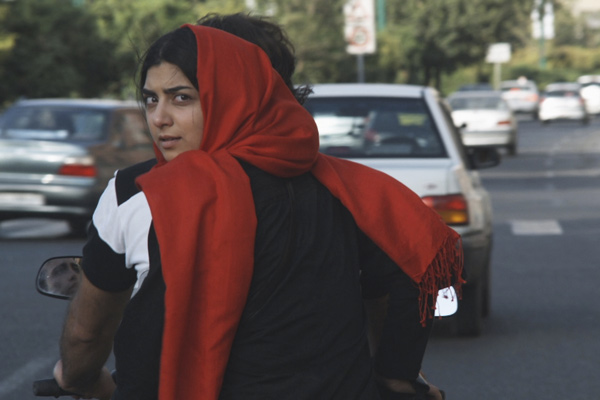I Am Nasrine is one of those small, low-budget films showing somewhere awkward on a day and time that probably aren’t ideal but you can’t expect everything in life to be handed to you on a plate, and it’s worth the effort, if you can stir yourself sufficiently. (Can you? Most people I asked said you couldn’t, but I believe in you, as I always have.) Its writer-director, Tina Gharavi, who is Iranian-born but is now a lecturer in Digital Media at Newcastle University, was nominated for a Bafta for most outstanding debut, and although it is one of those films about the immigration experience, and a young woman who flees her home country for one of those better lives that could well turn out worse, it’s not what I would call An Earnestly Grim Wrist Slitter. Instead, it is affectionate, humane, tender and, ultimately, optimistic. So stir yourself, and prove I am right, for once in my life.
The film opens in modern-day Tehran — where, I now know, Gharavi had to film secretly — with Nasrine, as played by Micsha Sadeghi, who has one of those blissful faces that may or may not be beautiful, and it doesn’t matter. All you need know is it’s a face that unfolds gently, in different ways, and is the kind of face you could watch all day every day. (I do not have such a face, I believe.) Nasrine, we are given to understand, is something of a rebellious free spirit, and after a run-in with the police and awful ordeal at the police station — she had been arrested for riding on the back of a boy’s moped, while wearing a bold orange head scarf — her stern father decides to send her and brother Ali (Shiraz Haq) to the UK for ‘education and opportunity’.They








Comments
Join the debate for just £1 a month
Be part of the conversation with other Spectator readers by getting your first three months for £3.
UNLOCK ACCESS Just £1 a monthAlready a subscriber? Log in